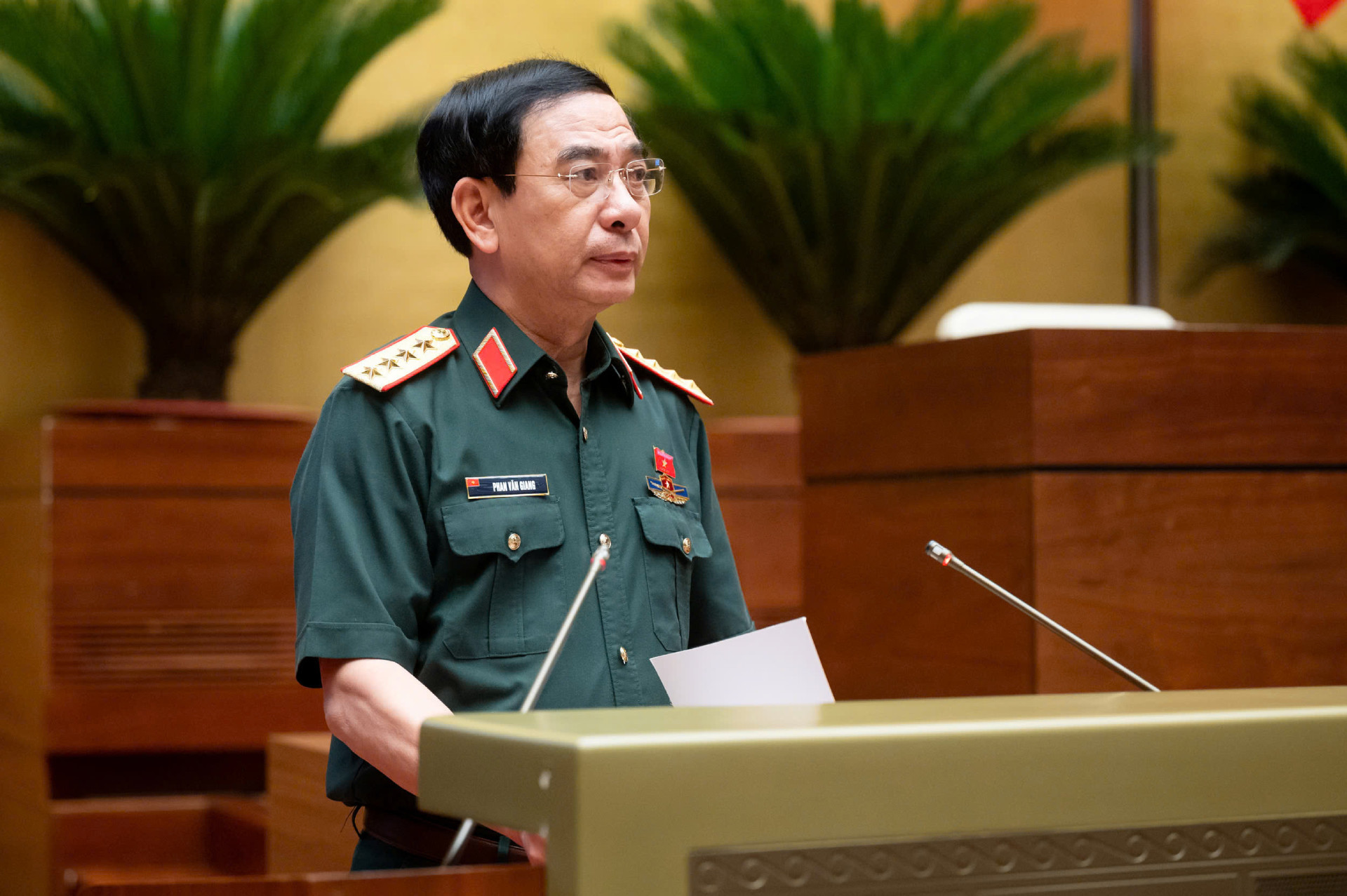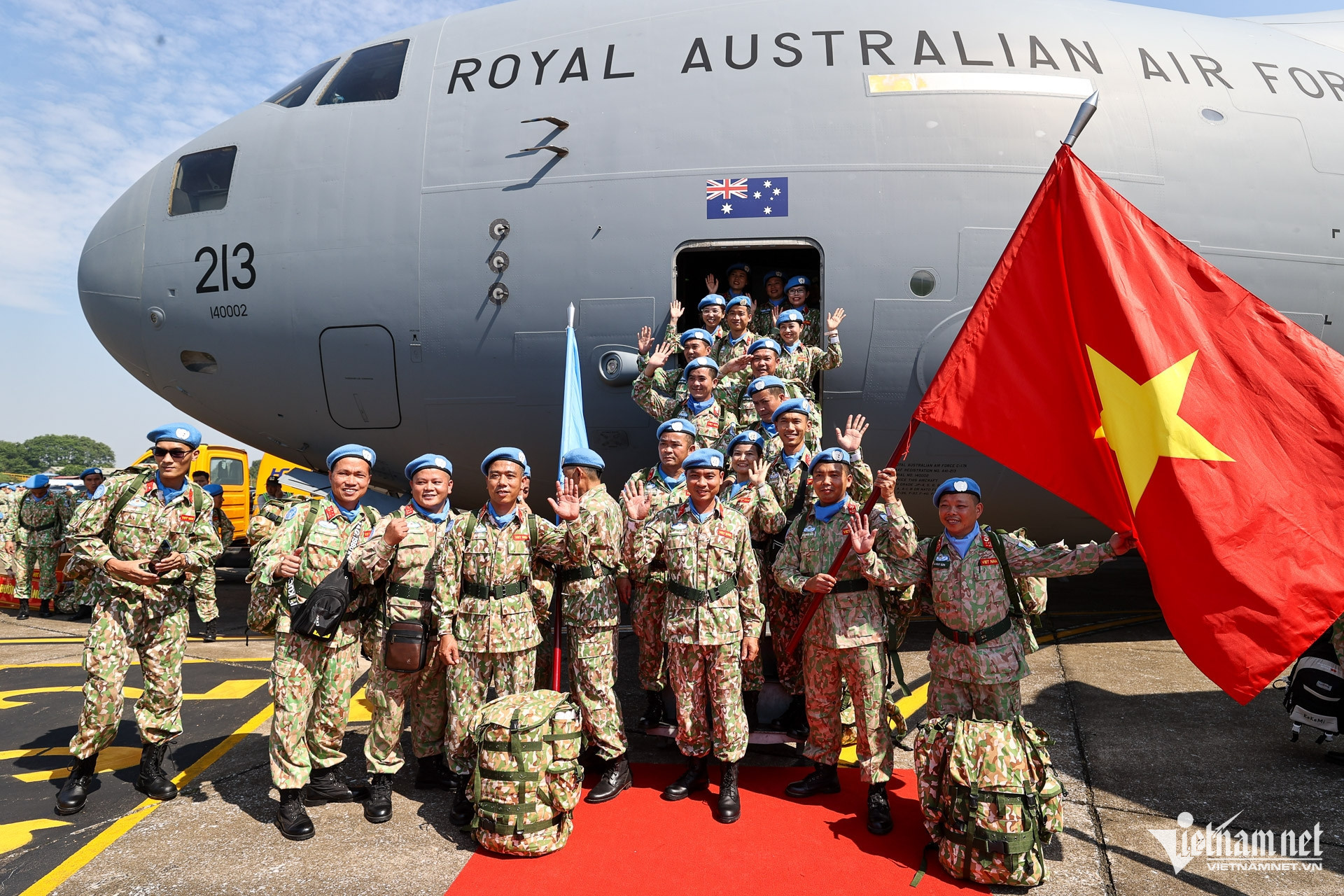Defense Minister Phan Van Giang presented a draft law to the National Assembly expanding eligibility for Vietnam's UN peacekeeping forces to include civilian officials and public employees.

On the afternoon of May 14, General Phan Van Giang, Minister of National Defense, submitted a draft Law on Participation in United Nations Peacekeeping Forces to the National Assembly. The proposed legislation aims to broaden the scope of Vietnam's peacekeeping personnel to include civilian roles.
According to General Giang, Vietnam officially began sending forces to UN peacekeeping missions in June 2014. Since then, the country has deployed nearly 1,100 personnel, including military officers, professional soldiers, and 13 police officers, to missions such as UNMISS (South Sudan), MINUSCA (Central African Republic), UNISFA (Abyei area), EUTM-RCA (EU Training Mission in the Central African Republic), and the UN Headquarters.
Vietnamese personnel have consistently performed with distinction, earning praise from UN leadership, mission commanders, host governments, and the international community.
The draft law outlines guiding principles, target participants, deployment formats and fields, force building, resource allocation, benefits and entitlements, international cooperation in peacekeeping, and the responsibilities of various agencies and organizations.
Eligible participants include military officers, professional soldiers, defense workers and employees, non-commissioned officers, enlisted soldiers, and units under the Ministry of National Defense; as well as police officers, technical specialists, workers, soldiers, and units under the Ministry of Public Security.
Notably, the draft also extends participation to state officials, civil servants, and public employees. This marks a significant expansion of civilian involvement.
The drafting body explained that during several high-level engagements, UN leaders had encouraged Vietnam to expand the composition, scope, and geography of its peacekeeping deployments. This includes leadership and expert positions in field missions and civilian posts within the UN Secretariat.

The inclusion of civilian personnel is expected to yield multiple benefits for Vietnam, allowing the country to tap into a broader talent pool for peacekeeping roles, especially leadership and policy-making positions. This move is intended to enhance Vietnam’s international influence and standing.
A new provision in the draft law addresses prohibited behaviors for peacekeeping personnel. While Vietnamese peacekeepers are known for their strong sense of discipline, responsibility, and patriotism, the law seeks to formalize regulations to safeguard national security, social order, and Vietnam’s international reputation.
Additionally, the draft law introduces new entitlements and preferential policies for peacekeepers, including special mechanisms for procurement of goods and equipment for deployment. It also outlines provisions for international cooperation in training, professional exchanges, and joint exercises.
In its review of the bill, the National Assembly’s Committee on National Defense, Security and Foreign Affairs supported the inclusion of civilian officials, calling the change both practical and consistent with UN standards.
Some members also recommended adding a general provision distinguishing between "direct" and "indirect" peacekeeping forces. This would ensure that benefits and policies are appropriately aligned with each category of personnel.
The committee requested that the drafting agency carefully refine the law to ensure clarity, practicality, and ease of implementation.
Tran Thuong